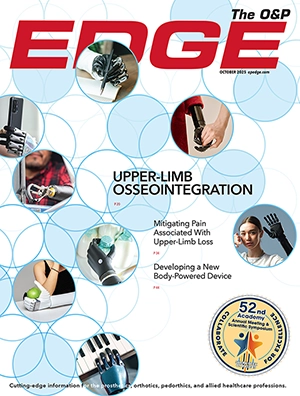Faced with the wealth of new knowledge, fresh discoveries, and groundbreaking technologies, an increasing number of O&P clinicians are focusing on the need for research and professionalism in the field by considering a doctoral degree, adding to about three dozen people worldwide who hold O&P-focused PhDs. To learn about the rewards and challenges doctoral candidates face, and their potential impact on the profession, we talked with clinicians who have chosen this path.
Counting the Cost in Time and Money
Shane Wurdeman, PhD, CP, FAAOP(D), chief clinical officer, Hanger, points out that while master’s degrees in O&P come with standardized timelines, doctoral degrees do not. “You might be looking at anywhere from three to seven or more years, depending on what you’re studying and whether you’re studying full-time or also maintaining your employment. One to three years of didactic work on the front end is followed by dissertation work that can take from 12 months to several years, and may depend on variables beyond your control, like recruitment, access to data, etc.”
Support authors and subscribe to content
This is premium stuff. Subscribe to read the entire article.





